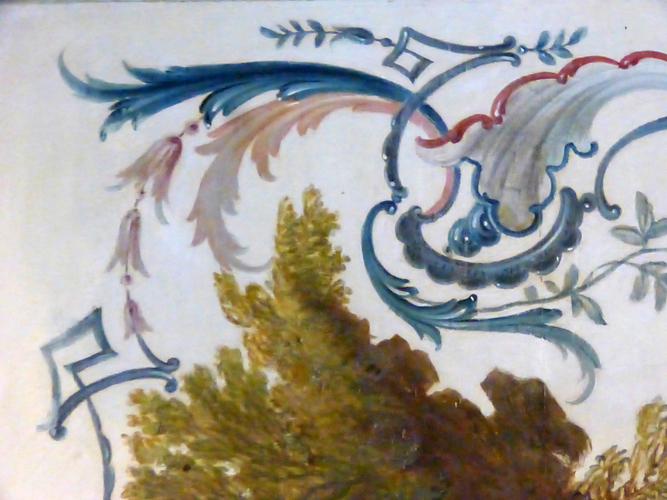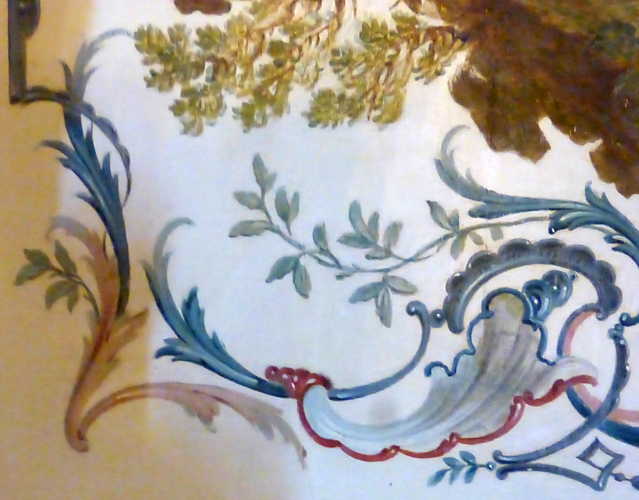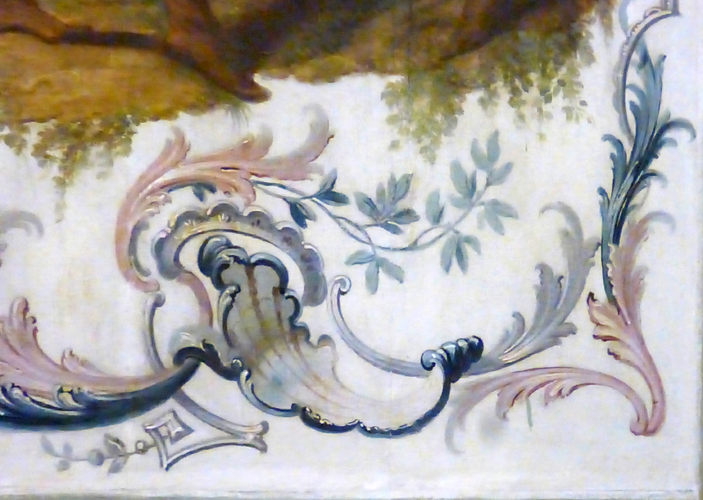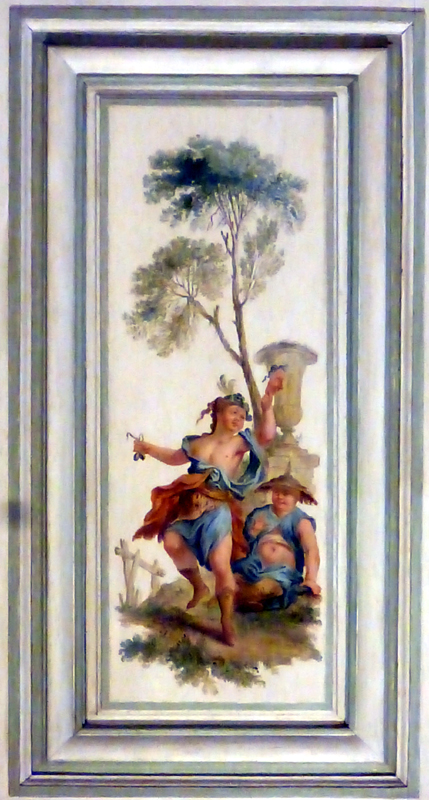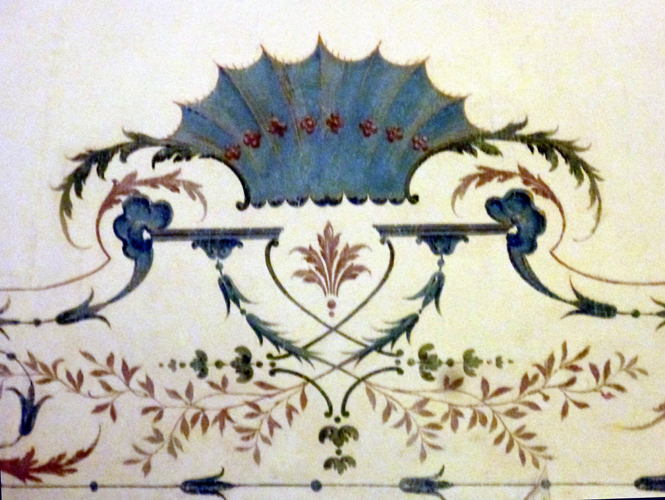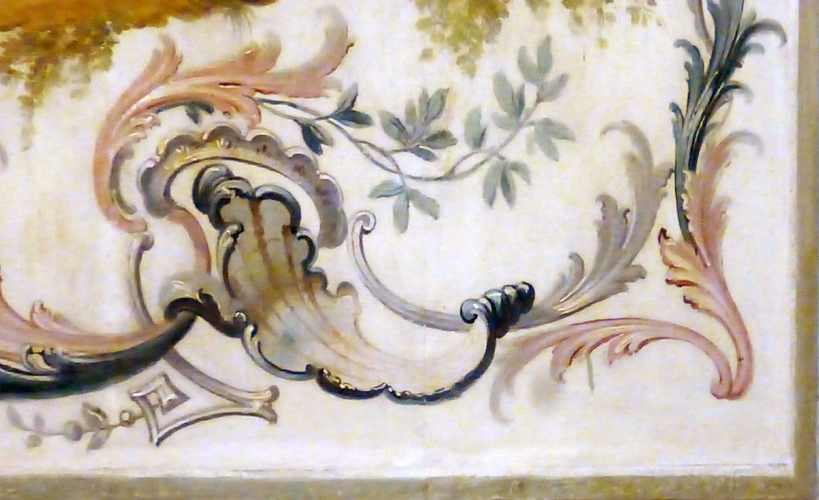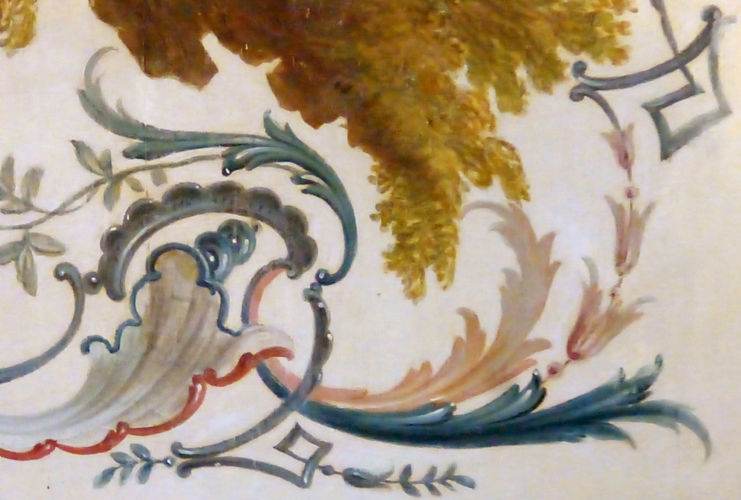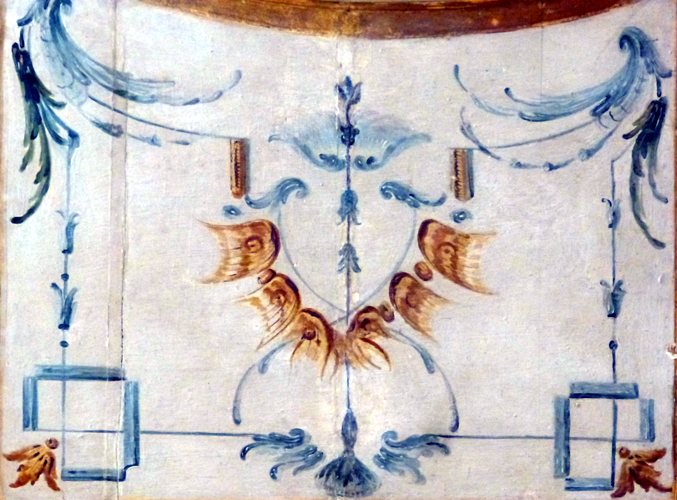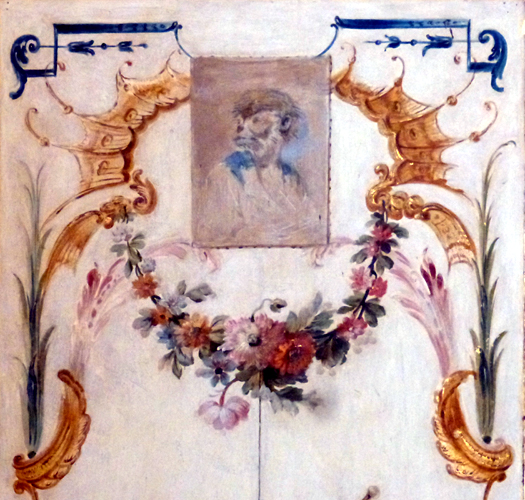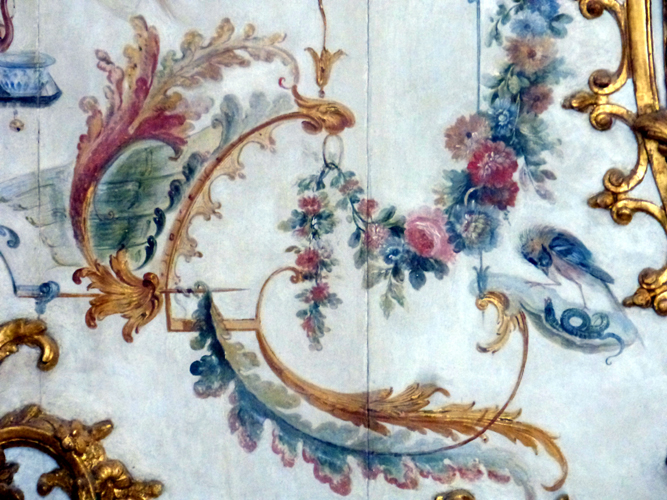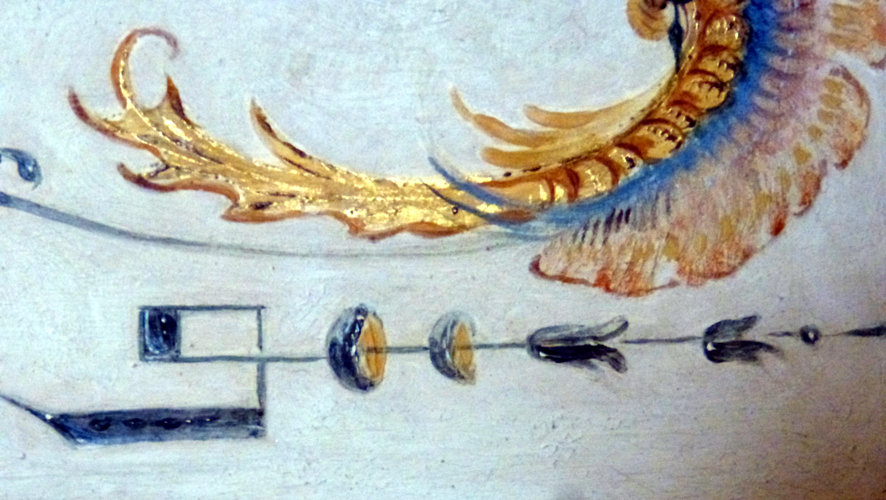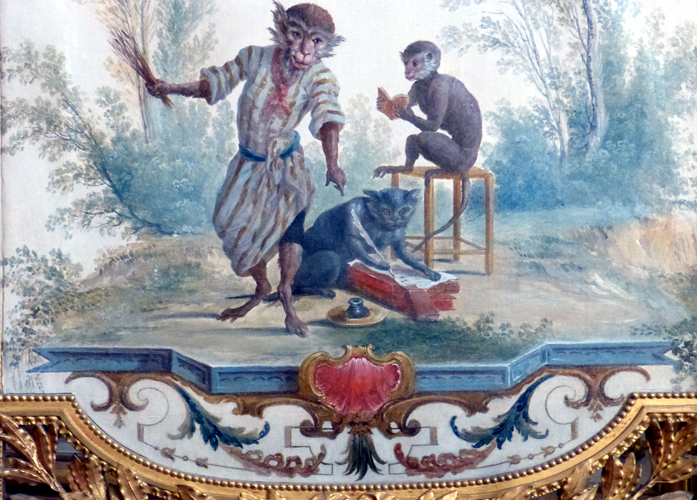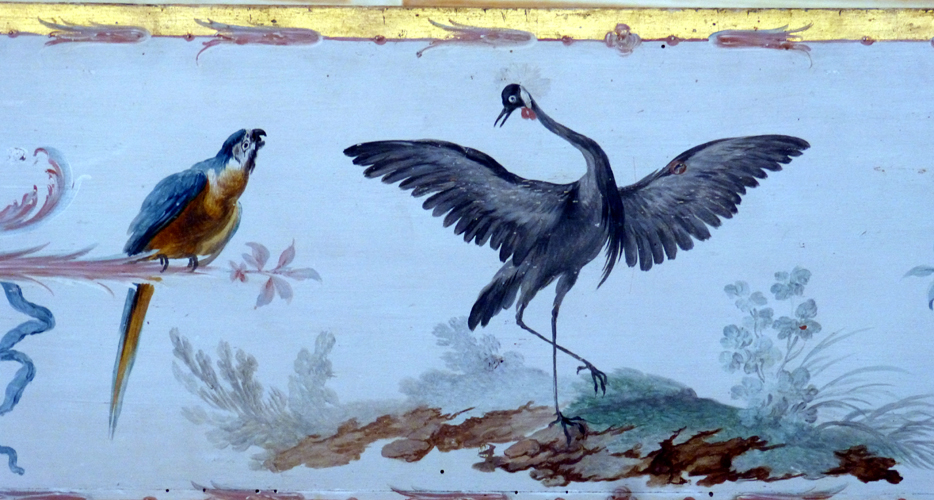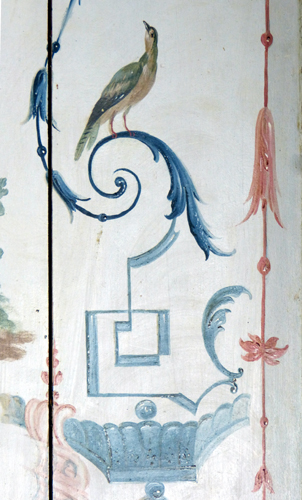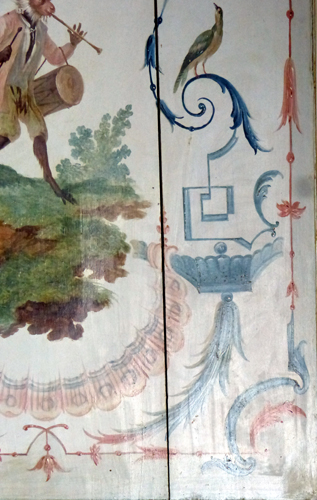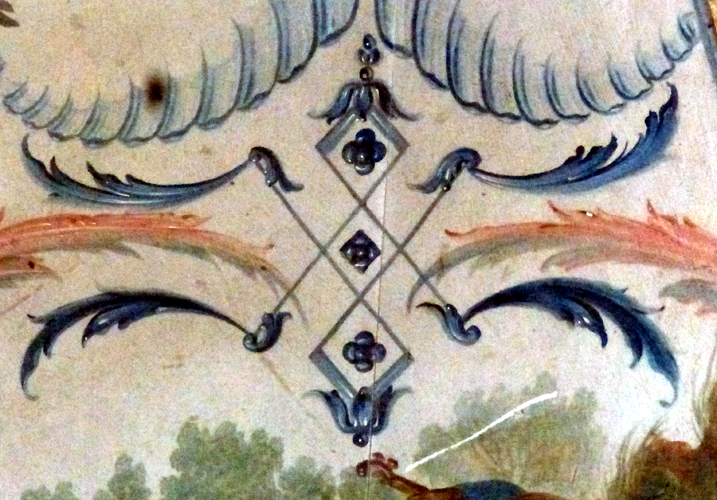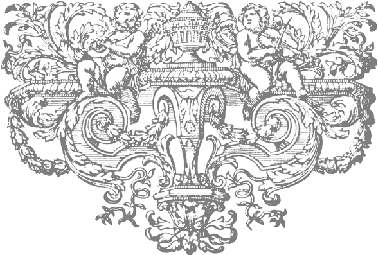A Franco-Flemish double-manual harpsichord,
![]()
Examples of Arabesque and Figure Paintings by Christophe Huet
for comparison with the decorations on the Franco-Flemish harpsichord.
|
Examples of Huet decoration from the interiors of the Chateau Champs-sur-Marne: |
|
|
|
Chateau de Champs-sur-Marne: note the characteristic 'geometrical' arabesques alongside the foliate arabesques. |
|
|
Chateau de Champs-sur-Marne: |
|
|
Chateau de Champs-sur-Marne: |
|
|
Chateau de Champs-sur-Marne: A rare example of a human figure - but, as is most common, the figures are Chinese. |
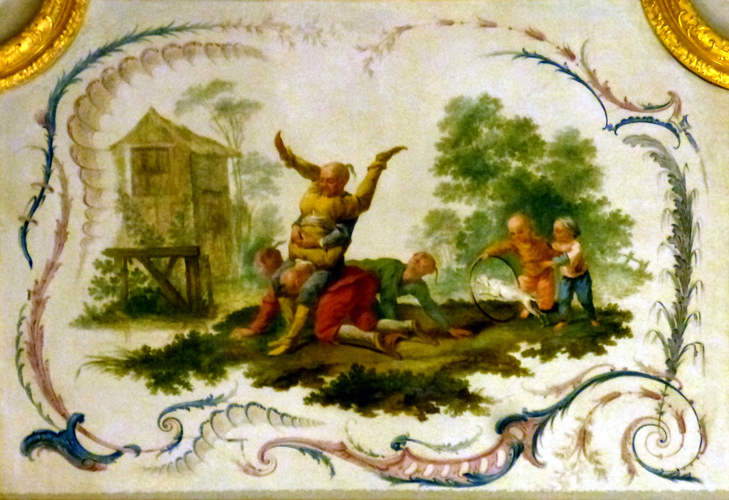 |
Chateau de Champs-sur-Marne: Another rare example of human figures in Huet decoration - but, as is most common, the figures are Chinese. Is this a kind of sexual perversion scene with the head (and mouth) of one figure buried deeply in the crotch of another - or am I the pervert in thinking it so??
|
|
|
Chateau de Champs-sur-Marne: a good example of the delicately elegant Huet decoration. |
|
|
Chateau de Champs-sur-Marne: |
|
|
Chateau de Champs-sur-Marne: a fairly common mix of geometrical arabesques, foliate decoration, foliage, etc. decoration. The inventiveness of the highlights and shadows in totally imaginary objects is extraordinary. |
|
|
|
|
Examples of Huet's decorations from the Chateau de Chantilly: |
|
|
|
Huet Chantilly: typical ornaments |
|
|
Huet in Chantilly: In honour of a very special grandfather monkey! |
|
|
Huet Chantilly: A wonderful example of Huet's invention and his mixture of floral, imaginary, gilt, foliate decoration. His curves and spirals are always beautifully carried out and seem, almost, to follow a theoretical mathematical curve. |
|
|
Huet Chantilly: detail. |
|
|
Huet Chantilly: a good example of Huet Singerie decoration - usually his figure paintings are of monkeys and not of humans or putti, although the figures on the case sides of the Franco- Flemish harpsichord are all human or (at least) putto figures. |
|
|
|
|
Huet's decoration of Francois Blanchet harpsichord, Paris, 1733, Chateau de Thoiry (the earliest example here): |
|
|
|
1733 Blanchet double-manual harpsichord: the decoration of a part of the cheek of the instrument. |
|
|
1733 Blanchet double-manual harpsichord: front flap decoration - dejà vu? |
|
|
1733 Blanchet double-manual harpsichord: a part of the cheek decoration. The dancing crane is both spectacular and exquisite! |
|
|
1733 Blanchet double-manual harpsichord: a part of the interior of the lid flap. |
|
|
1733 Blanchet double-manual harpsichord: a part of the interior of the lid flap. This kind of decorations was clearly from the imagination of a genius! |
|
|
1733 Blanchet double-manual harpsichord: an inventive mix of foliate and scallop decoration in various colours enrichedf with invented highlights and shadows. |
